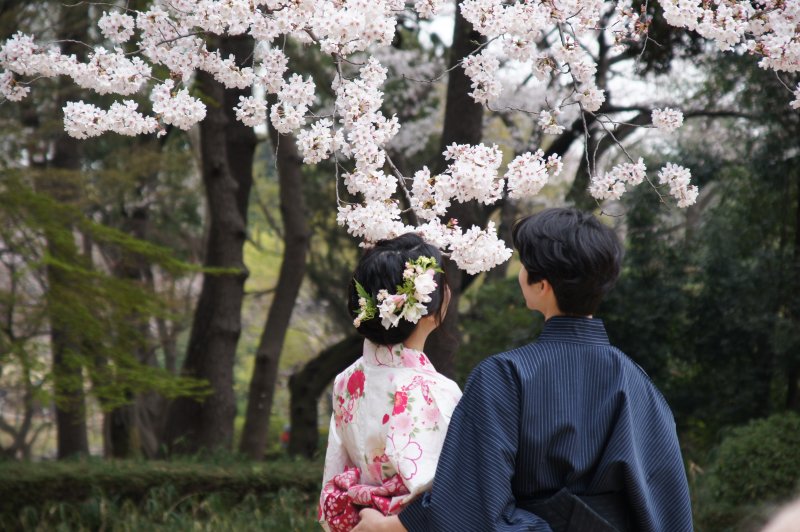- Home
- Love Quotes
- MONO NO AWARE PHILOSOPHY: Compassion for the beauty of impermanence
MONO NO AWARE PHILOSOPHY: Compassion for the beauty of impermanence
MONO NO AWARE PHILOSOPHY: Compassion for the beauty of impermanence

Mono No Aware is a familiar concept in Japanese culture. This phrase is used to describe a manic, silent sadness before the brilliant but fragile, ephemeral beauty of life. Rich in content and full of sophistication, the "soul" of Mono No Aware is difficult to encapsulate within the limits of words, but can only be absorbed through the senses of each individual.
UNDERSTANDING MONO NO AWARE
According to Japanese culture, "Mono" means "thing", "Aware" is roughly understood as affection, and "No" represents possession. Therefore, Mono No Aware represents gentle, deep emotions in the constant change of life. The term can also be translated as sensitivity to the ephemeral, or empathy for all things. It is a perception of impermanence and a feeling of wistfulness in the face of reality. Mono No Aware is also defined as “the ahh – ness of things” – a subtle but overwhelming sadness in our souls when we realize the ephemeral nature of everything around us.
THE ORIGINAL OF THE MONO NO AWARE PHILOSOPHY
The term Mono No Aware originates from the Heian period (794-1185) in Japan and was deeply influenced by Buddhist philosophies. This phrase denotes the ephemerality of material life and was a basic category in Japanese literature of that period.
According to The School of Life: "Mono No Aware was first used in the Heian period to describe a sudden, nameless feeling welling up within, which is equivalent to words like 'ah', 'oh'" or “wow”. This feeling comes to mind immediately before we can put it into words.” Mono No Aware did not come into widespread use until the 18th century, when Motoori Norinaga, an Edo period Japanese cultural scholar, used the term in his literary critique of The Tale of Genji. Mono No Aware then ceased to be the name of an emotion, but became a form of perception, an important philosophy in the culture and tradition of Japan.
LOVE FOR CHERRIES

Perhaps the best way to grasp the concept of Mono No Aware is to understand the Japanese love for cherry blossoms. This flower usually blooms for 2 weeks, then falls off and creates soft pink "carpets" on the roads. Like cherry blossoms, reality is the most beautiful gift in moments of "intersection" between the beginning and the end, between life and death.
The beauty of cherry blossoms lies not only in their fragrance, but also in their short life span. The rapid blooming and fading process of flowers makes us more nostalgic and regretful. In Japanese culture, cherry blossoms are the flower of spring, of new beginnings. Therefore, every year, when the cherry blossoms bloom, the Japanese organize to enjoy tea and watch flowers with relatives and friends. Traditionally, they would picnic together in gardens covered with soft petals.
Not as bright as apricot blossoms, not as sweet as roses, cherry blossoms are simple and simple, but they are especially attractive to visitors with their fragile and ephemeral beauty. This is a metaphor for the philosophy of Mono No Aware.
"The moment the petals fall is when we feel the beauty of the flower most deeply. Contained in this emotion is a deep sadness, a nostalgia like when we have just finished a journey, completed a book chapter, or when we have to say goodbye to a familiar thing."
MONO NO AWARE AND IMPERMANENNCE IN BUDDHISM
Impermanence is one of the fundamental teachings of Buddhism and a common feature of all things. Impermanence explains the decaying process of the human body, the transition from youthful vitality to old age and frailty, the appearance and dissolution of all things... Understanding the nature of impermanence is an important milestone on the journey of spiritual enlightenment. The Japanese Buddhist tradition has shown that the awareness of the fading nature of reality is not weakness or despair, but an inspiration to help us focus more and live fully in the present moment.
Closely related to the Buddhist philosophy of impermanence, Mono No Aware aims to accept and let go of clinging to frivolous things. Although sadness is still present somewhere when witnessing changes, but deep in the soul is peace and peace before the fragility of the world.
THE BEAUTIFUL OF IMPERMANENT
"Life is like cherry blossom petals, quickly blooming but also quickly fading. Although short, each passing moment leaves behind "masterpieces" about the nothingness of all things."
Our feelings and love for life, nature or reality are fueled by an awareness of impermanence, in the same way we cherish cherry blossom petals for their fragile beauty. .
Things come and go. Instead of mourning, learn to cherish pure emotions, be gentle and flexible to "go down" with the flow of life. When we realize the Mono No Aware philosophy, we will understand that when an old journey closes, a new journey opens. Cherry blossoms fall after 2 weeks of full bloom to prepare for a new spring, a new life cycle. Life is inherently cycles, a continuous continuation between the beginning and the end. So, welcome every moment of your life with joy, in bliss, to make life more complete and meaningful, friends!
Thanks for reading!